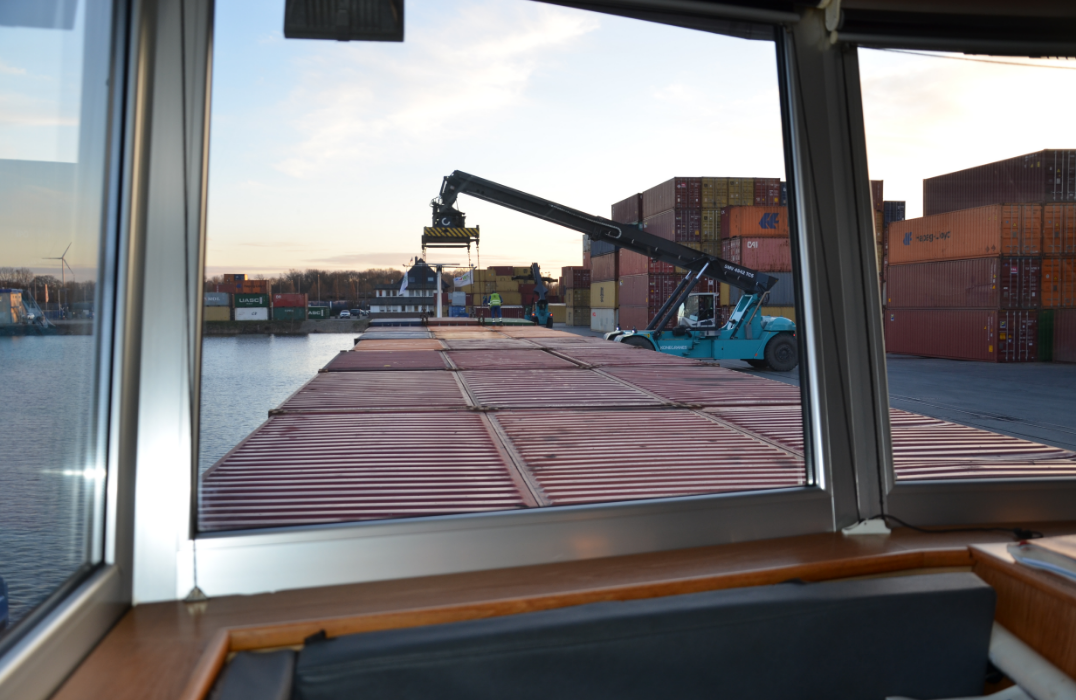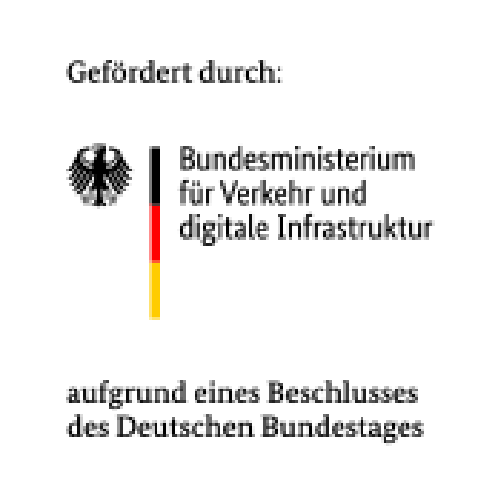Binntelligent
The project "Binntelligent - Intelligent Information Systems for Process Optimization and Automation in Inland Ports" is funded as part of the "IHATEC - Innovative Port Technologies" program by the Federal Ministry of Transport and Digital Infrastructure (BMVI) and has a duration of three years, from October 1, 2018, to September 30, 2021.
Issue
In national and international freight transport, German inland ports play a crucial role as a link between inland shipping and other modes of transportation. In comparison, inland shipping still holds untapped potential and available capacity, making it a valuable contributor to enhancing the efficiency of freight transport. One of the major challenges lies in integrating inland ports into multi- and synchromodal logistics chains. Currently, opportunities for optimizing transport and handling processes remain unrealized due to disruptions in information flow within and around inland ports.
Project Objective
The project aims to optimize communication among the involved stakeholders, particularly in the collaboration between inland and seaports, as well as waterborne and land-based transportation modes. Through IT-enabled coordination, "Binntelligent" also seeks to establish the prerequisites for future synchromodal transport concepts.

Approach
Within the project, various intelligent information technologies are to be designed, implemented, and tested in the field of application. Diverse decision-relevant, process- and order-related data and information will be collected and made available to all stakeholders through a platform. Smart algorithms and methods will be employed to enhance process predictability, thereby increasing planning certainty in inland ports. Innovative IT solutions, supported by strategic and tactical simulations, aim to improve the operational processes of trimodal inland ports.
The development of solutions starts with an analysis of the relevant transport and handling processes for container and bulk goods in inland shipping and ports. The concepts and solutions developed in the project will be implemented and evaluated as examples for the Weser and Mittellandkanal areas in collaboration with inland shipping and the ports of Hannover, Braunschweig, Bremen, and Bremerhaven.
ISL as Consortium Coordinator
Within the project, ISL takes on the role of consortium coordinator, which includes general project management and professional exchange with associated partners and other funding projects. Additionally, ISL plays a significant role in analyzing the processes and various requirements of the practical partners.
ISL holds a prominent position in creating simulation models for handling and transportation processes in inland ports and inland shipping. In addition to supporting strategic and tactical decisions, such as personnel deployment planning, simulation will enable the analysis of the economic and environmental impacts of the process innovations conceived in the project.

Project duration
10.2018 – 09.2021
Project partners
- BIBA – Bremer Institut für Produktion und Logistik GmbH
- dbh Logistics IT AG
- Hafenbetriebsgesellschaft Braunschweig mbH
- Hafen Hannover GmbH
- modal 3 Logistik GmbH
Further information
Funding notice



